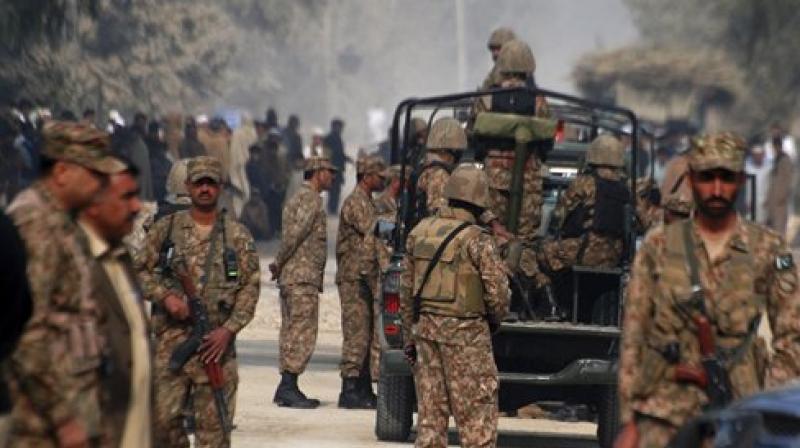Firmer response to Pak is unavoidable

It is evident that the Pakistan military is calculatedly placing India-Pakistan relations in a deeper freeze than it needs to be. On Monday morning a Pakistani border action team crossed the Line of Control in the Krishna Ghati area of Poonch sector in Kashmir, proceeded some 200 metres into the Indian side, and ambushed, killed and beheaded two members of an Indian patrol team — one from the Army’s Sikh Regiment and the other from the Border Security Force. There has predictably been loud condemnation from various levels in India, rightly drawing attention to the barbaric nature of the act, but no retaliatory action so far. Although it has been realised for some time that Pakistan has crossed the threshold of covert action long ago, as is clear from repeated actions by Pakistani irregulars who try to pass off as members of specifically anti-India Islamist terrorist outfits, it appears the government has been unable to mount suitable action that will inflict at least proportionate damage on Pakistani entities.
Stepping up of the military dynamic by Pakistan is clear from the fact that a unit of the Pakistan Army has now got into play. Earlier, reliance was placed on terrorist outfits. Border action teams comprise mostly regulars who facilitate the crossing into India of armed terror groups. There are indications that the government has authorised the Army to plan a fitting response — at least one that would satisfy public opinion in this country. Whether this leads to a spiralling of border incidents and expands the scope of military activity remains to be seen. In any case, even if there is a delay in the Indian response, we should be prepared for more provocations from the Pakistani side. More, we should be ready with a political decision to prepare for a border skirmish, and build a domestic consensus around it.
The Congress, the main Opposition party, appears to be in favour of firm action. The delay in delivering an appropriate response is apparently due to lack of sufficient clarity on the feasibility of competing options. But this is not doing the government’s credibility much good. Senior BJP leader Subramanian Swamy told a news agency on Tuesday that “surgical strikes have lost their meaning”. The publicly acknowledged surgical strikes launched by India in September 2016 simply didn’t prove to be any deterrence as terrorist attacks on Indian military camps continued unabated. Dr Swamy’s open speaking begs the inference that the government could be contemplating a more punitive response. In this connection, any possible moves from China’s side in aid of Pakistan may also have to be factored in. If that’s a likely scenario, some preparatory diplomatic activity on our part can become pertinent. But it is pointless concealing that the mood in the country is grim.

